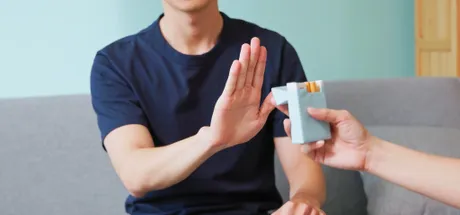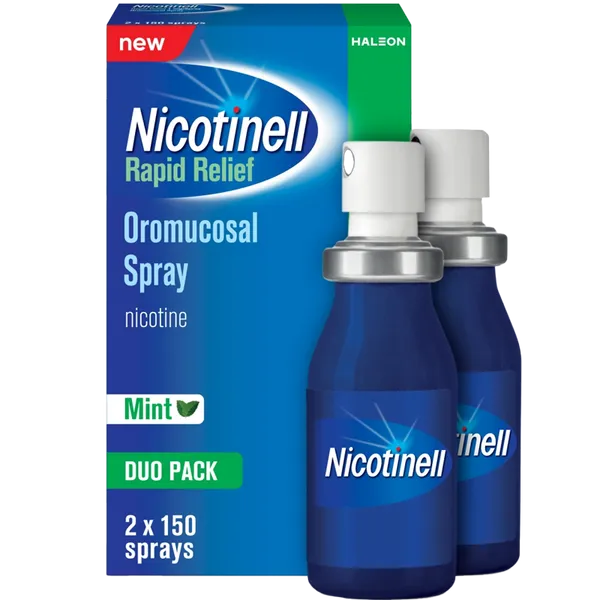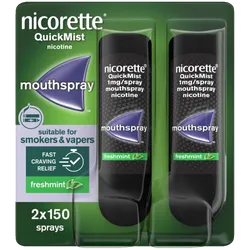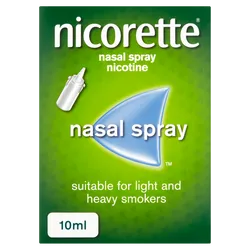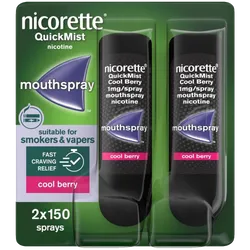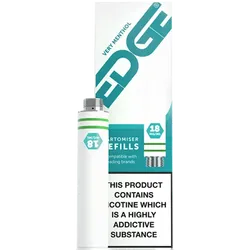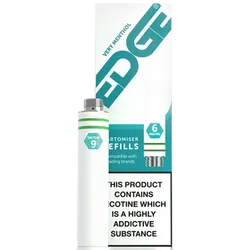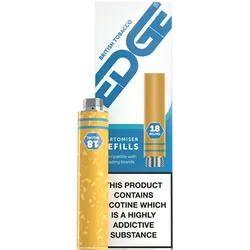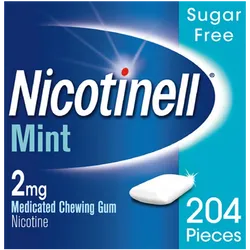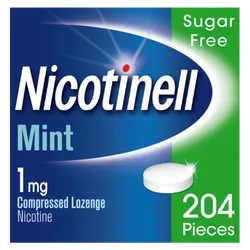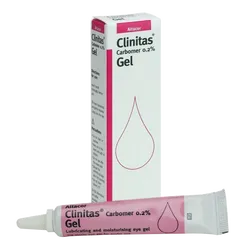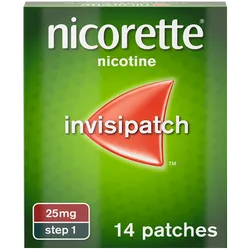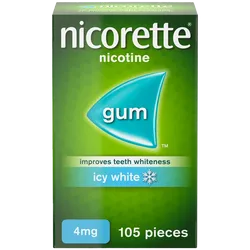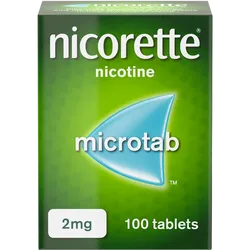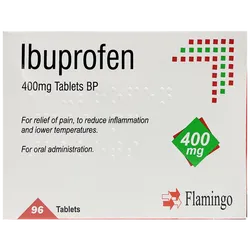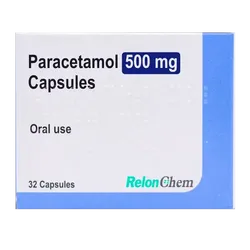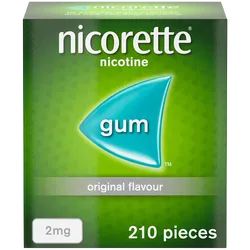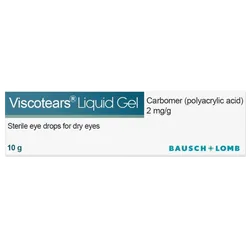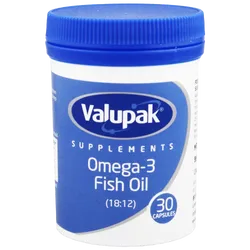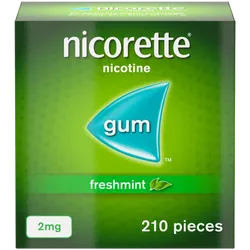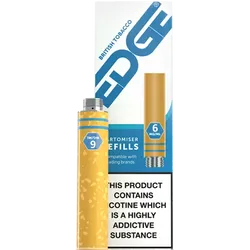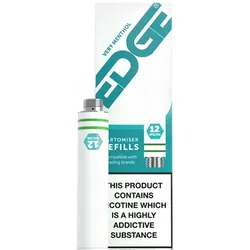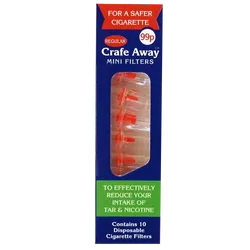Important Warnings for Nicotinell Rapid Relief Mint 1mg Nicotine Mouth Spray Duo
Do NOT use Nicotinell Rapid Relief 1mg Nicotine Mouth Spray Duo if:
- You are allergic to nicotine or any of the other ingredients (listed in the ingredients section).
- You are under the age of 18 years.
- You have never smoked or vaped.
Talk to your doctor or pharmacist before using this medicine if you suffer from any of the following conditions:
- Recently (within 3 months) had a heart attack or stroke.
- Chest pain (unstable angina) or resting angina.
- A heart condition that affects your heart rate or rhythm.
- High blood pressure which is not being controlled by medicines.
- Ever had allergic reactions that involve swelling of the lips, face and throat (angioedema) or itchy skin rash (urticaria). Using NRT can sometimes trigger this type of reaction.
- Severe or moderate liver disease.
- Severe kidney disease.
- Diabetes.
- An overactive thyroid gland.
- A tumour of the adrenal gland (phaeochromocytoma).
- Stomach or duodenal ulcer.
- Oesophagitis.
Nicotinell Rapid Relief 1mg Nicotine Mouth Spray Duo should not be used by non-smokers/non-vapers.
Children and adolescents: Do not give this medicine to children and adolescents. The correct dose for adults could seriously poison or even be life-threatening for small children. It is therefore essential that you keep Nicotinell Rapid Relief 1mg Nicotine Mouth Spray Duo out of sight and reach of children at all times.
Other medicines and Nicotinell Rapid Relief 1mg Nicotine Mouth Spray Duo: Tell your doctor or pharmacist if you are taking, have recently taken or might take any other medicines, including medicines obtained without a prescription. This is especially important if you take medicines containing theophylline (to treat asthma), tacrine (for Alzheimer's disease), clozapine (for schizophrenia), or ropinirole (to treat Parkinson's disease).
Pregnancy, breast-feeding and fertility: It is very important to stop smoking/vaping during pregnancy as it can result in poor growth of your baby, premature births, or stillbirths. It is best if you can give up smoking/vaping without the use of medicines containing nicotine. If you cannot manage this, Nicotinell Rapid Relief 1mg Nicotine Mouth Spray Duo should only be used after consulting a healthcare professional who is managing your pregnancy. Nicotine is found in breast milk and may affect your child, so Nicotinell Rapid Relief 1mg Nicotine Mouth Spray Duo should be avoided during breast-feeding. If recommended by your doctor, take the spray just after breast-feeding and not during the 2 hours before breast-feeding.
Contains ethanol, sodium, propylene glycol and benzyl alcohol: This medicine contains 7 mg of ethanol in each spray (equivalent to 100 mg/ml). It contains 0.5 mg sodium per spray (equivalent to 0.025% of recommended maximum daily dietary intake for an adult). It contains 10.95 mg propylene glycol and 0.018 mg benzyl alcohol per spray. Benzyl alcohol may cause allergic reactions.
Overdose of nicotine: Overdosing of nicotine may occur if you smoke/vape at the same time as you take Nicotinell Rapid Relief 1mg Nicotine Mouth Spray Duo. If a child takes this medicine, or if you have used more than you should, contact your doctor or go to the nearest hospital immediately. Symptoms of overdose include nausea, vomiting, too much saliva, stomach pain, diarrhoea, sweating, headache, dizziness, changed hearing, and feeling very weak. At high doses, these may be followed by low blood pressure, weak and irregular pulse, difficulty breathing, extreme tiredness, circulatory collapse and general convulsions.
Possible side effects: Like all medicines, this medicine can cause side effects. These generally depend on the dose you take. Very common (may affect more than 1 in 10 people): Hiccups, headache, nausea, throat irritation. Common (may affect up to 1 in 10 people): Local effects such as burning sensation, inflammation in the mouth, changes in taste perception, dry mouth or increased amounts of saliva, dyspepsia, pain or discomfort in tummy, vomiting, flatulence or diarrhoea, feeling tired (fatigue), hypersensitivity (allergy), tingling, cough. Uncommon (may affect up to 1 in 100 people): Effects on the nose such as stuffiness, sneezing, runny nose, wheezing (bronchospasm), feeling like breathing requires more effort than usual (dyspnoea), throat tightness, skin flushing (blushing), increased sweating, oral effects such as mouth tingling, inflammation of the tongue, mouth ulcers, damage to the lining of the mouth, voice changes, pain in the mouth and throat, belching, bleeding gums, palpitations, increase of heart rate, hypertension, rash and/or itching (pruritus, urticaria) of the skin, abnormal dream, chest discomfort and pain, weakness, feeling unwell. Rare (may affect up to 1 in 1,000 people): Difficulty swallowing, reduced sensations in the mouth, retching. Not known (frequency cannot be estimated from available data): Blurred vision, increased tear production (lacrimation), dry throat, stomach discomfort, pain in the lips, abnormal heart rhythm, redness of the skin, allergic reactions including swelling of the face and mouth (angioedema or anaphylaxis). If you get any side effects, talk to your doctor or pharmacist. This includes any possible side effects not listed in this leaflet. You can also report side effects directly via the Yellow Card Scheme at: www.mhra.gov.uk/yellowcard or search for the MHRA Yellow Card in the Google Play or Apple App Store. By reporting side effects you can help provide more information on the safety of this medicine.
Disposal: Remaining nicotine in the spray bottle may have harmful effects if reaching the aquatic environment. Any unused medicinal product or waste material should be disposed of in accordance with local requirements. Do not throw away any medicines via wastewater or household waste. Ask your pharmacist how to throw away medicines you no longer use. These measures will help to protect the environment.
